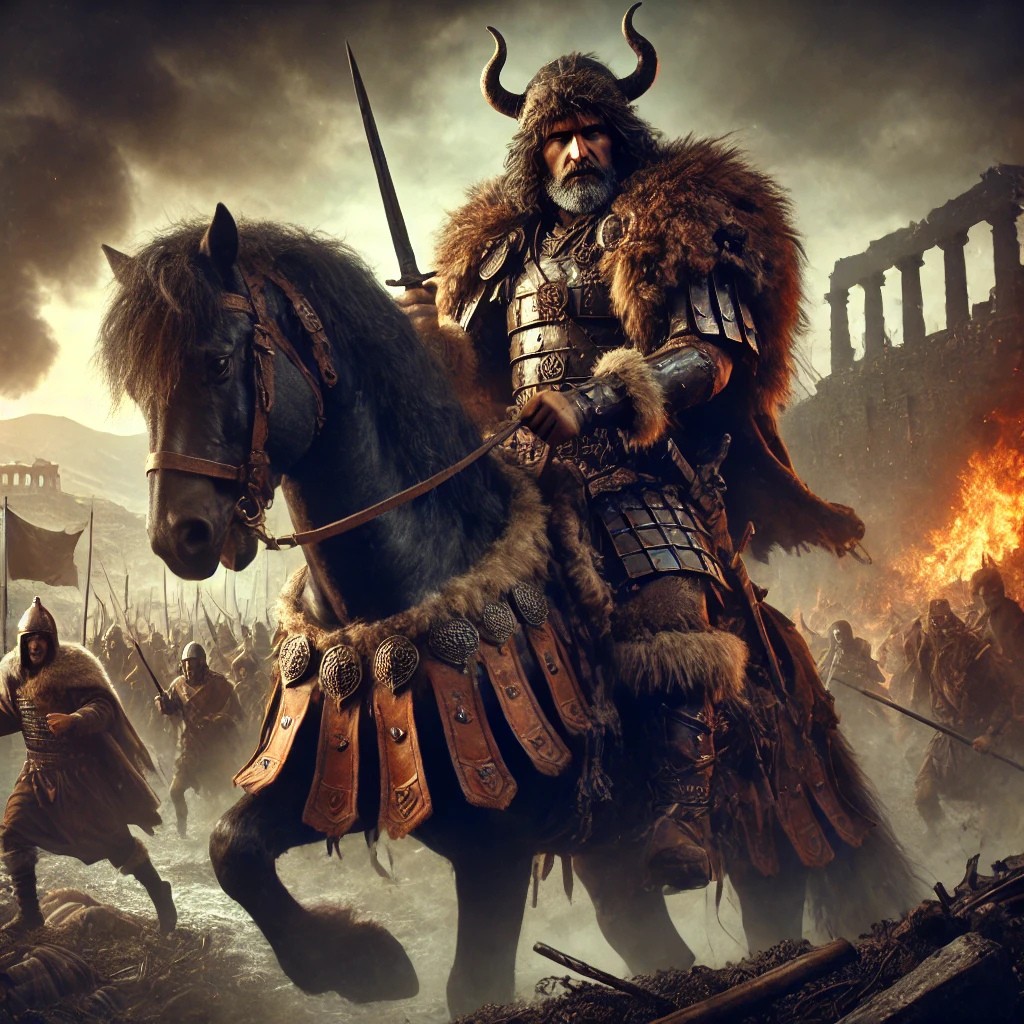Attila the Scourge of God (395 - 453 A.D.)
The terror of ancient Europe

Attila, the Scourge of God: a symbol of chaos and terror in Late Antiquity. He led the Huns on a devastating campaign of looting that culminated in the invasion of Gaul and Italy, leaving behind only destruction - Image created with AI
Attila, King of the Huns from 434 to 453, is one of the most studied and fascinating historical figures of Late Antiquity, a symbol of the chaos and anarchy that followed the prosperity and order of the Roman world. Leading a vast confederation of tribes subjected to the power of the Huns, Attila turned his empire into an almost unstoppable war machine, sowing fear and destruction wherever he passed. Not surprisingly, the Christian populations of Europe nicknamed him 'Scourge of God', a term that captured the dramatic perception of his advance in a Europe where the order that had governed the ancient world for centuries was collapsing.
After rising to command his people together with his brother Bleda, Attila immediately distinguished himself for his brutality: he had his brother assassinated in order to remain alone in command. Once he rose to the command of the Hun army, he decided to advance in a campaign of conquest against the Eastern Roman Empire, which was forced to pay him tribute to prevent its cities from being sacked. The peak of the Hunnic raids was reached in 451, when Attila crossed the Rhine with a vast army and invaded Gaul, razing the cities of Metz and Orleans to the ground.
The only Roman general who managed to stop him was Flavius Aetius at the Battle of the Catalaunian Fields, but even after that Attila continued to pose a threat, albeit a diminished one. The year after the battle, he turned his attentions to Italy, sacking Aquileia and burning entire towns. Legend has it that, upon their arrival, many inhabitants of north-eastern Italy took refuge on the islands of the Venetian lagoon, founding the city of Venice precisely to escape his hordes.
Rome seemed doomed to destruction, but was saved thanks to the intervention of Pope Leo I, who negotiated with Attila the withdrawal of the Hunnic army from Italy, supposedly in return for a hefty reward. Attila's reign of terror came to an end in 453, when he died in mysterious circumstances in the middle of the night, from an illness or, according to some historians, a plot by his generals.
Site: Internet Archive, Edward A. Thompson, A History of Attila and the Huns (consulted 2024)
Edina Bozoky. Attila e gli Unni: Verità e leggende. Bologna: Il Mulino, 2014.
2025-06-02
Francesco Toniatti
